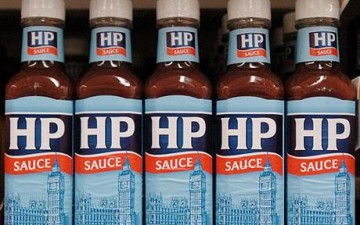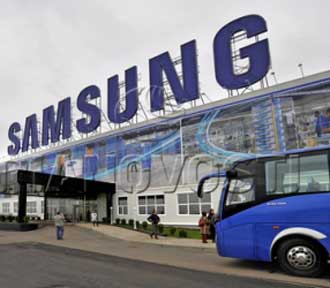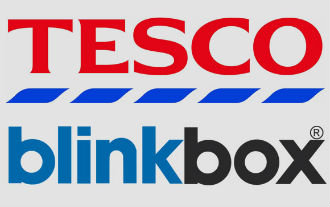 The European Semiconductor Industry Association (EISA) released data for November 2014 which showed sales were up by 3.4 percent compared to the same month a year before.
The European Semiconductor Industry Association (EISA) released data for November 2014 which showed sales were up by 3.4 percent compared to the same month a year before.
 The European Semiconductor Industry Association (EISA) released data for November 2014 which showed sales were up by 3.4 percent compared to the same month a year before.
The European Semiconductor Industry Association (EISA) released data for November 2014 which showed sales were up by 3.4 percent compared to the same month a year before.
 A report said that Google lost US search share in December while Yahoo gained share for the first time in a long time.
A report said that Google lost US search share in December while Yahoo gained share for the first time in a long time.
 Open Sauce depository Github is being hit in a crossfire between porn companies and torrent sites.
Open Sauce depository Github is being hit in a crossfire between porn companies and torrent sites.
Several Digital Millenium Copyright Act (DMCA) complaints filed to Google by the porn companies have taken down dozens of legitimate GitHub URLs.
GitHub support pages, entire code repositories, and user profile pages have all been purged from Google and Tomasz Janczuk, a former Microsoft employee, had part of his GitHub repository removed from Google’s search results by a company representing Adam & Eve, a porn production company.
Janczuk said that removing GitHub pages from Google’s search results could harm the open source software community by reducing its visibility online.
Apparently Adam&Eve thought that Janczuk’s URL, “https://github.com/tjanczuk/edge,” was apparently too close to The Edge, a 2001 flick made by the company.
Of course it is not just the porn companies doing this. Other GitHub pages have been taken down by the music companies for similar reasons.
All of it is because the content groups are using the dumbest method to find P2P content – that of URLs rather than actually checking if the site infringes their copyright.
GitHub does have a DMCA policy requires that users be notified of complaints levied against them and given time to correct the issue. Google handles its 345 million yearly takedowns nearly automatically .
Nicky Case, developer of Nothing to Hide, an open source indie game was targetted by Total Wipes in September for having the word “hide” in its GitHub URL, in an email. In the end however his software was not taken down from Google’s search results.
But he said that if his GitHub repository was less famous, maybe it wouldn’t have gone as well.
 Samsung confirmed its first annual profit decline since 2011, but said that a fourth quarter pick up indicated that earnings may have stabilised.
Samsung confirmed its first annual profit decline since 2011, but said that a fourth quarter pick up indicated that earnings may have stabilised.
The smartphone maker lost market share for three consecutive quarters up to July-September, and analysts say the trend likely continued in the October-December period.
The Tame Apple press claims it is because Samsung cannot beat the super bendy iPhone 6, but it is more likely that Samsung has seen its Chinese market disappear to locally made brands. It has also suffered from a weak won, which explains its limp.
Healthy memory chip demand and improvements in the mobile business on the back of new mid-to-low tier smartphones are buoying hopes that Samsung has at last staunched the bleeding.
Samsung said its fourth-quarter operating profit is likely to be $4.74 billion, beating what the cocaine nose jobs of Wall Street had predicted.
The outlook means Samsung’s 2014 profit will probably be the weakest in three years, although it marks a rebound from the third-quarter’s profit which was the firm’s lowest quarterly result in more than three years. The company is expected to release its annual results later this month.
Most analysts expect profits to continue improving through at least the second quarter of 2015 with the outfit’s semiconductor division to do much better than the mobile business in October-December.
The company did not provide a breakdown of its earnings figures in Thursday’s outlook, but a person with direct knowledge of the matter said that components sales picked up across the board, with healthy demand for memory chips and higher liquid crystal display panel prices.
The mobile division’s contribution to Samsung’s profit has slipped from about 68 percent at its peak in 2013 to about 44 percent in the third quarter.
 TalkTalk confirmed that it has written a cheque for Tesco’s Blinkbox Movies business and in a three for two deal bought the supermarket giants budget fixed line broadband and phone customers.
TalkTalk confirmed that it has written a cheque for Tesco’s Blinkbox Movies business and in a three for two deal bought the supermarket giants budget fixed line broadband and phone customers.
Tesco has been suffering from a pile of financial hurt and has been looking to offload some of its less lucrative assets. Web-based Blinkbox video streaming service was given a kicking from better offerings from Netflix, Amazon and NOW TV.
Tesco originally took ownership of Blinkbox for £3m in 2011. Since then the supermarket giant has added Blinkbox Books through the £4.5m acquisition of digital book service Modcast and they later paid £10.8m to buy music streaming service WE7, which was turned into Blinkbox Music.
But the service has not made enough cash and last we heard made a post-tax loss of £24.7m on total revenues of just £3.5m.
Vodafone and TalkTalk were known to have an expressed an in the service.
TalkTalk said that the integration of blinkbox with its YouView based TV business would “begin immediately” through a restructuring of the combined platform.
Adrian Letts, Blinkbox CEO and Co-Founder, will join TalkTalk as Managing Director for TV and report to Tristia Harrison, Managing Director of the ISPs consumer business.
Buying Tesco’s broadband base is another example of TalkTalk trying to make its national network to grow faster.
Apparently Tesco’s broadband customers, which were still using Vodafone’s LLU telecoms network, will be transferred across to the TalkTalk platform by September 2015.
 Microsoft’s forthcoming OS Windows 10 has been praised to the skies by thinkpad maker Lenovo.
Microsoft’s forthcoming OS Windows 10 has been praised to the skies by thinkpad maker Lenovo.
Lenovo Peter Hortensius, chief technology officer at Lenovo told PC World that customers are anxious to breathe some life into Windows 10 and his outfit was bullish and hopeful about Windows 10.
Windows 10 will succeed Windows 8.1 operating system, which has been slammed for its touch-based tablet user interface. Windows 10 will resolve many problems affecting Windows 8.1, which is a good OS but has its problems, Hortensius said.
Windows 10 will boot straight to the desktop and brings back many familiar Windows 7 features, which Microsoft hopes will please OS loyalists. It also removes program incompatibility issues plaguing Windows Phone and Windows 8 versions for Intel and ARM processors.
Analysts have said Windows 10 could spur a round of PC upgrades in businesses, which could boost PC shipments. Lenovo’s shipments have increased even as rivals like Dell and Hewlett-Packard struggled in recent years as laptop and desktop shipments slowed.
Customers are responding well to changes in Windows 10, and Microsoft is taking the right approach in developing the OS, Hortensius said.
Lenovo was positive about where the product was going and depending on customer demand, Lenovo may consider the OS for a range PCs, tablets and handsets.
“It’s up to Microsoft to make competitive offerings. If they do… we’ll gladly use it,” Hortensius said.
 After it released its iPhone 6 which bent in your pocket, the more cynical amongst us thought that Apple might try to make this a “feature”.
After it released its iPhone 6 which bent in your pocket, the more cynical amongst us thought that Apple might try to make this a “feature”.
Sure enough Apple has won a patent for flexible display tech that allows for layering of components like microphones or speakers
Flexible displays, in and of themselves, are nothing new. What makes this patent different is that it includes support for components — like buttons, microphones, or speakers — that can be mounted around the display and work through it.
So in other words when the phone bends everything else bends with it – exactly the effect when you put a bad structurally designed phone in your skinny jeans and the whole thing bends.
What appears to have happened is that Apple did not just make its bending on its iPhones a feature, it actually took out a patent on it.
According to Patently Apple this flexible display is capable of being bent and acting as a pass-through device that can handle a wide range of functionalities.
Apple envisions people bending or in some way manipulating the screen to touch a button activator below its surface.
By deforming that specific portion of the display, the activity associated with the button would be created. In another example, the flexibility of the display would create a porous layer that would allow for sound waves to pass through. Therefore, speakers and microphones and other components could sit under a screen and work as they do now.
Actually, it does appear that using this technology Apple could build a phone which is all-screen or nearly all-screen in design which will mean the death of the home button.
 Scientists at the Griffith University in Queensland claim quantum physics will help protect data on the internet.
Scientists at the Griffith University in Queensland claim quantum physics will help protect data on the internet.
 A number of official Gernan government sites have been hacked by a group that claims affinity with the Russian government’s moves in Ukraine.
A number of official Gernan government sites have been hacked by a group that claims affinity with the Russian government’s moves in Ukraine.
 Manufacturers of X86 based servers are taking market share from intermediary companies such as Dell and HP.
Manufacturers of X86 based servers are taking market share from intermediary companies such as Dell and HP. At the CES show at Las Vegas this week, Intel Chief Executive Brian Krzanich showed off a computer built into a jacket button and a wristband that transforms into a selfie-snapping flying camera drone.
At the CES show at Las Vegas this week, Intel Chief Executive Brian Krzanich showed off a computer built into a jacket button and a wristband that transforms into a selfie-snapping flying camera drone.
It says a lot about where Intel sees the future of computing. Gone are the days of number crunching business computers, instead the world’s chip makers are developing gadgets which are better at photographing their own users.
Already tourist destinations are full of people carrying their phones on sticks so that they can take snaps of themselves at famous monuments without needing a friend. Now it seems that Intel sees a future for machines that can take pictures of bald heads at famous monuments while at the same time navigating through a sea of Japanese drones re-enacting a narcissistic battle of Midway on the Spanish Steps.
Krzanich used most of his keynote to talk up Intel’s efforts in computerised apparel and other sensor-packed gadgets as consumers get bored with their tablets and start selling their kidneys for the next shiny thing.
Curie, a new button-sized computer for smart clothes, is due out later in 2015 and includes Bluetooth radio as well as the latest from Intel’s Quark line of low-power chips. However Krzanich did sound a little like an East End market barrow boy when he talked about “rings, bags, bracelets, pendants, and yes, even the buttons on our jackets.” They are not dodgy, not dodgy.
Intel is working with Oakley to launch a smart gadget for athletes later this year, Krzanich said. The chipmaker in December announced it was developing smart glasses with Luxottica, which owns the Oakley brand.
Krazanich also said that he was spending $300 million to get more women and minorities in the technology and the video game industries. Note that money will be spent training women and minorities, there is no guarantee that Intel or any other technology company will hire them.
Intel has a poor record of accomplishment employing women and some minorities. While it is happy to hire Chinese and Indian workers, because they are nice and cheap, only a quarter of Intel’s US employees in 2013 were women and 12 percent of its workforce were Hispanic or African American.
Last year Intel made a huge mistake by backing the misogynistic GamerGate campaign to pull advertising from gaming news sites who dared to slam sexism in the gaming industry. In the end it changed its mind and resumed advertising.
 Despite a storm in a teacup over the Sony hack, which saw high level political involvement, Sony insists that there will be no financial fallout for the company.
Despite a storm in a teacup over the Sony hack, which saw high level political involvement, Sony insists that there will be no financial fallout for the company.
Sony Chief Executive Kazuo Hirai said he does not expect the November cyber attack on the company’s film studio to have a significant financial impact.
Apparently the film which North Korea wanted blocked “The Interview,” has generated revenue of $36 million. It earned another $5 million at 580 independent theatres showing the movie in North America.
The flick cost $44 million to make but given that it was a rubbish film, Sony probably was relieved that hack meant that it did not have to spend much marketing it. Most of the sales have been online. It will probably make a little more when it goes to DVD and Sony will get its cash back on a film that it otherwise probably would not have. Some have said that Sony spent $30 million marketing the flick which would mean that the film would come in at a loss.
“We are still reviewing the effects of the cyber-attack,” Hirai told reporters. “However, I do not see it as something that will cause a material upheaval on Sony Pictures business operations, basically, in terms of results for the current fiscal year.”
Sony Pictures may need several more weeks to rebuild its computer network after what has been deemed as the most destructive cyber-attack on a company on US soil. North Korea has denied it is behind it.
 The maker of $1,800 wires Monster has sued Apple over alleged “fraud and deceit” in the way that its new subsidiary Beats acquired control of the rights to the popular “Beats by Dr. Dre” headphones.
The maker of $1,800 wires Monster has sued Apple over alleged “fraud and deceit” in the way that its new subsidiary Beats acquired control of the rights to the popular “Beats by Dr. Dre” headphones.
In May 2014, Beats was bought by Apple, but under a partnership formed in 2008, Monster and Beats developed “Beats by Dr. Dre,” a line of colourful, high-end headphones that vie with the likes of Skullcandy and Bose.
Monster engineered the headphones and was unfairly cut out before Beats was sold to Apple last year, it is alleged.
The complaint names Beats co-founders Jimmy Iovine and Dr. Dre as well as HTC as defendants.
The complaint said that the defendants, who still work for Apple, fraudulently acquired Monster’s “Beats By Dr. Dre” product line including all development, engineering, manufacturing, marketing, distributing and retail rights, via a “sham” transaction with HTC.
Apparently, in 2011, HTC said it would buy a 51 percent stake in Beats for $309 million. Beats bought back half of HTC’s interest in the company soon after the transaction, the complaint complained.
The defendants used the change of control as an excuse to end its relationship with Monster in 2012, while it made millions off the work of Lee and Monster.
Iovine and Dr. Dre then “improperly erased” Monster and Monster’s founder Noel Lee from Beats’ history.